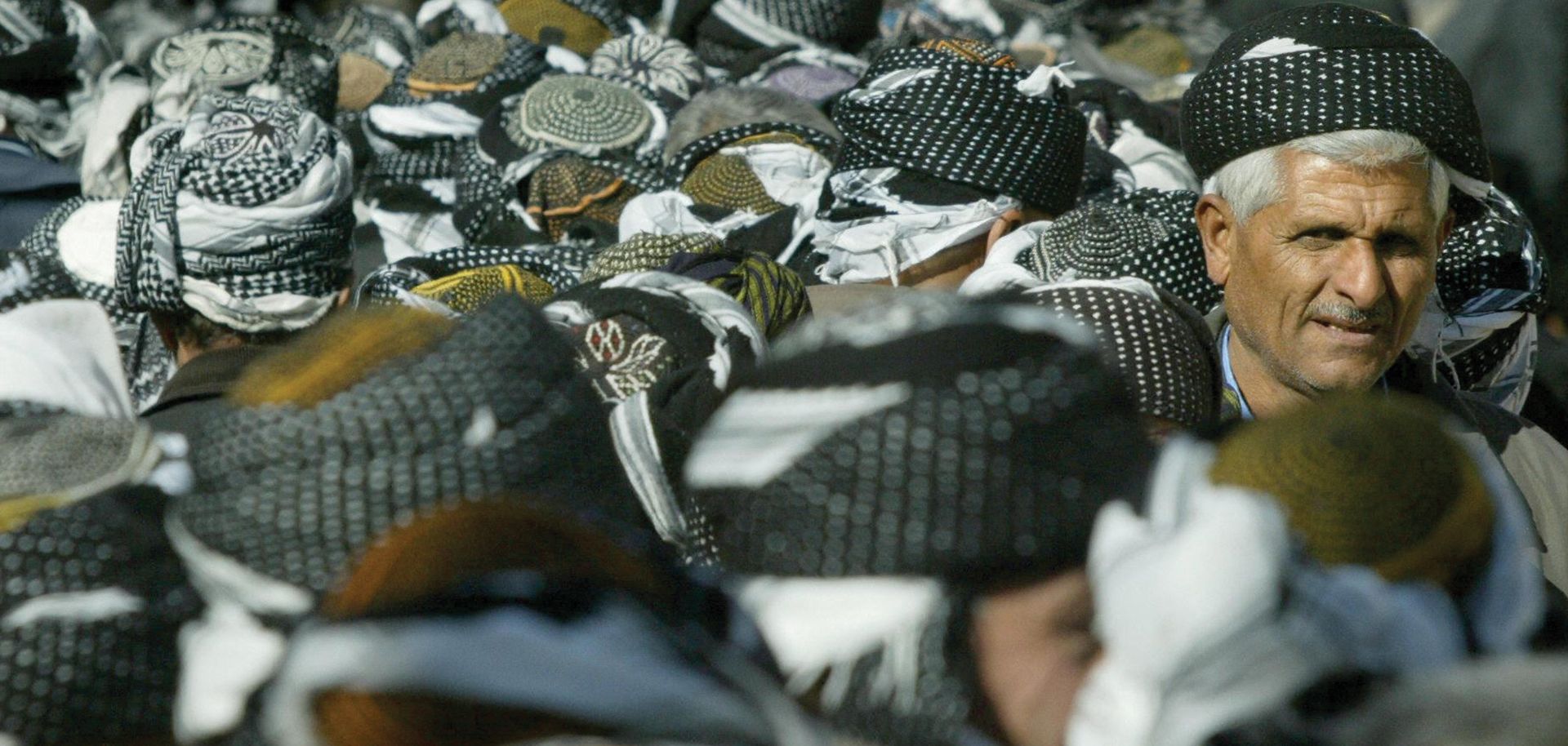ASSESSMENTS
A Brief Guide to Understanding the Kurds
May 23, 2016 | 09:15 GMT

In 2005, Kurds in northern Iraq chose who would represent them in their legislature as well as in the Iraqi legislature. It has been said that the Kurds are a nation without borders at the crossroads of Turkey, Syria, Iraq and Iran, though that is only partly true. Citizenship is not always so simple a matter.
(PATRICK BAZ/AFP/Getty Images)
Subscribe Now
SubscribeAlready have an account?
